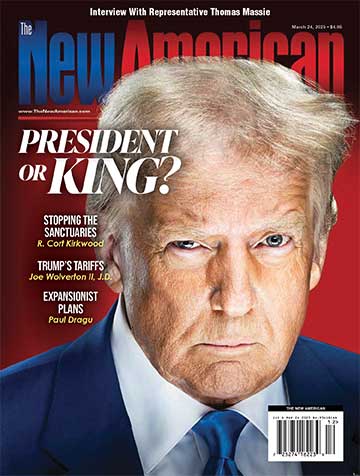
First it was Confederate statues, then effigies of Columbus and other Americans. Then it was Cops and Gone with the Wind. Even Honest Abe isn’t safe from the Black Lives Matter mob.
And now, Aunt Jemima, the marketing image that has sold pancakes, syrup, and other products for almost a century, has joined the long parade of Things That Cannot Be Seen because, we are told, they perpetuate offensive stereotypes.
Uncle Ben, the face of converted rice, must be erased, too.
How many other marketing images will be lost to the BLM mob is unknown, but we do know the mob isn’t finished.
Offensive Image
Aunt Jemima had to go because she offended a whole lot of people who didn’t know they were offended until two weeks of rioting and urban destruction after the death of George Floyd demonstrated they could demand just about anything they want and get it.
Quaker Oats jettisoned the marquis brand yesterday: “We recognize Aunt Jemima’s origins are based on a racial stereotype,” a spokesman said. “While work has been done over the years to update the brand in a manner intended to be appropriate and respectful, we realize those changes are not enough.”
Those “origins” — Aunt Jemima was a black mammy — underwent a major facelift in 1989 when Quaker oats jettisoned her traditional headscarf and other garb.
But that was not enough, the company said: “We acknowledge the brand has not progressed enough to appropriately reflect the confidence, warmth and dignity that we would like it to stand for today. We are starting by removing the image and changing the name.”
Among the motivators for Quaker Oats, the Washington Post reported, was yesterday’s TikTok video from a singer you’ve never heard of, Kirby. She showed viewers “how to make a non-racist breakfast.” Dumping a box of pancake mix down the drain, Kirby explained that “Black lives matter, people. Even on the breakfast.”
Unsurprsingly, we are told, the real issue was sex, as the Post noted of tweets from Davita Davison, marketing director at FoodLab Detroit.
“Mammy was portrayed as dark-skinned, often pitch black, in a society that regarded black skin as ugly, tainted,” tweeted Davison. “She was obese, sometimes morbidly overweight. Moreover, she was often portrayed as old, or at least middle-aged. The attempt was to desexualize mammy”:
The implicit assumption was: No reasonable white man would choose a fat, elderly black woman instead of the idealized white woman. The black mammy was portrayed as lacking sensual qualities. The de-eroticism of mammy meant white women & by extension, the white family, was safe.
Most Americans likely just enjoyed their Aunt Jemima pancakes without thinking about all that, but anyway, another unhappy customer was Neil deGrasse Tyson, the astrophysicist.
“It’s not that Aunt Jemima was a symbol of a racist past, she was the very embodiment of a racist past,” he tweeted. “She will not be missed by anyone who knew that.”
How many stacks of Aunt Jemima pancakes Tyson wolfed down when he was a kid we are not given to know.
Except for her name popping up in a few recipes, Aunt Jemima’s name no longer appears on the Quaker Oats website. It is, one might say, gone with the wind.
Uncle Ben
Soon, Uncle Ben will be blown down the memory hole, too.
Mars, Inc., which also produces M&Ms, Snickers, and other products, explained why Uncle Ben must retire: “Now is the right time to evolve the Uncle Ben’s brand, including its visual brand identity, which we will do,” the company announced. “We don’t yet know what the exact changes or timing will be, but we are evaluating all possibilities.”
The company also suggested that the image was “racist”:
Racism has no place in society. We stand in solidarity with the Black community, our Associates and our partners in the fight for social justice. We know to make the systemic change needed, it’s going to take a collective effort from all of us — individuals, communities and organizations of all sizes around the world.
Unlike Aunt Jemima, Uncle Ben is unrelated to forbidden antebellum imagery.
“The story goes that in the late 1940’s, Gordon Harwell, one of the founders of Converted Brand Rice, and his partner were dining in their favourite Chicago restaurant,” the Uncle Ben’s website explains:
They were discussing how they were going to market their product to new customers, they began to discuss the legendary Texan farmer, Uncle Ben who was known for his exceptionally high quality rice. So right there and then, they christened their product Uncle Ben’s Converted Brand Rice. The face appearing on all Uncle Ben’s packaging is that of Frank Brown, a maitre d’hotel (head waiter) at an exclusive Chicago restaurant who agreed to pose for the Uncle Ben’s portrait.
Uncle Ben changed in 2007 because the image was “racially charged,” as the New York Times put it.
He was “reborn as Ben, an accomplished businessman with an opulent office, a busy schedule, an extensive travel itinerary and a penchant for sharing what the company calls his ‘grains of wisdom’ about rice and life. A crucial aspect of his biography remains the same, though: He has no last name.”
Now that the mob has vanquished the dire threats of statues, monuments, movies, pancakes, and converted rice, they can tackle the relatively minor troubles of murder, mayhem, drug addiction, and fatherless black children in cities such as Chicago, Detroit, and Baltimore.
R. Cort Kirkwood is a long-time contributor to The New American and a former newspaper editor.




